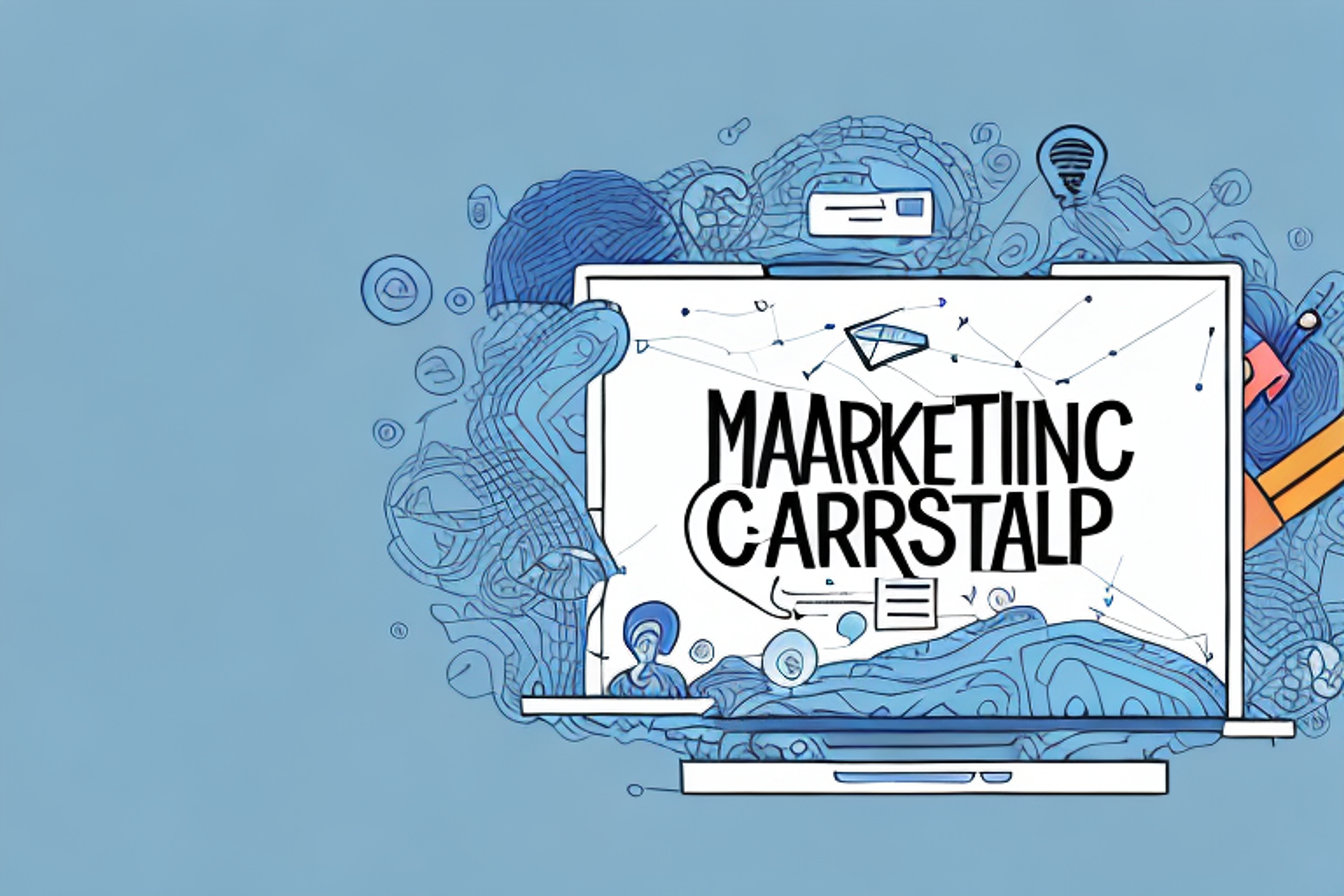Marketing Bootcamp: How to Prepare Yourself for a Career in the Dynamic Marketing Field
Are you looking to jumpstart your marketing career? Our Marketing Bootcamp guide will equip you with the essential skills and knowledge needed to thrive in the dynamic marketing field.
Posted October 26, 2025

Table of Contents
Marketing is a rewarding career path that presents an exciting opportunity for growth, development and creativity. If you are ready to jump into the marketing world, then it is important to have a strong understanding of the various types of marketing, the skills that you possess, and the steps you need to take to prepare yourself for the industry.
Understanding the Different Types of Marketing and Their Impact on the Industry
Marketing is a diverse field, with various types of marketing available, such as digital marketing, social media marketing, content marketing, email marketing, and many more. It is important to understand each type of marketing, their goals, and what sets them apart from each other. For instance, digital marketing focuses on using online channels and digital technology for promotion, while content marketing is centered on creating valuable and relevant content to attract and retain an audience. A deep understanding of each type of marketing, and their specific impact on the industry, will provide an advantage to new marketers.
One of the most significant impacts of marketing on the industry is its ability to create brand awareness and recognition. Effective marketing campaigns can help businesses establish a strong brand identity, which can lead to increased customer loyalty and trust. Additionally, marketing can also help businesses differentiate themselves from their competitors, by highlighting their unique selling points and value propositions. This can be especially important in crowded markets, where businesses need to stand out to attract customers.
Identifying Your Strengths and Weaknesses as a Marketer: A Self-Assessment Guide
Knowing your strengths and weaknesses is crucial in identifying which area of marketing you will excel in. Creating a personal brand starts with knowing who you are, what you are good at, and what you can improve on. A self-assessment guide can help you identify your strengths and weaknesses in marketing. Emphasizing your strengths and working on your weaknesses will create a versatile marketing skill set that is in high demand in the industry.
One way to identify your strengths and weaknesses as a marketer is to ask for feedback from colleagues, supervisors, and clients. This feedback can provide valuable insights into your performance and areas for improvement. Additionally, seeking out professional development opportunities, such as attending conferences or taking courses, can help you develop new skills and improve upon existing ones.
It's important to remember that identifying your strengths and weaknesses is an ongoing process. As the marketing industry evolves, so do the skills and knowledge required to succeed. Continuously assessing and improving upon your strengths and weaknesses will ensure that you remain competitive and relevant in the field.
Developing a Strong Personal Brand for Your Marketing Career
Your personal brand is what sets you apart from other marketers. Establishing a strong personal brand in marketing is about developing and marketing your own unique identity, values, and vision. Your personal brand can be built through a combination of experience, knowledge, and creativity. Successful personal branding can help your career development and set you up for success, but to do so, it is important to be authentic to your personal values.
One way to develop a strong personal brand is to consistently produce high-quality content that showcases your expertise and unique perspective. This can include blog posts, social media updates, and even speaking engagements. By sharing your knowledge and insights with others, you can establish yourself as a thought leader in your industry and build a loyal following of fans and supporters. Additionally, networking and building relationships with other professionals in your field can also help to strengthen your personal brand and open up new opportunities for career growth.
Building Your Marketing Skills: Tips and Tricks to Improve Your Craft
Investing time in building marketing skills can help ensure you have a competitive edge in the industry. These skills go beyond traditional marketing skills, such as copywriting and analytics, and extend into areas such as data science, design thinking, project management, and many others. There are various resources online that can help improve these skills, and learning online from a reputable source is a great option for busy professionals.
One important aspect of building marketing skills is staying up-to-date with the latest trends and technologies. This means keeping an eye on emerging social media platforms, new marketing automation tools, and advancements in artificial intelligence and machine learning. Attending industry conferences and networking events can also provide valuable insights and connections to help you stay ahead of the curve. By continuously learning and adapting to changes in the industry, you can position yourself as a valuable asset to any marketing team.
Crafting a Winning Marketing Resume: Dos and Don'ts to Make Your Application Stand Out
Your resume is the first impression you make with a potential employer. A well-crafted resume can make you stand out in the competitive job market. It is important to focus on the relevant skills and experiences that you possess. Tailoring your resume to the job application, rather than sending out a generic application, can increase the chances of securing an interview. It is also important to avoid common resume mistakes, such as spelling and grammar errors, unprofessional email addresses, and excessive personal details.
One important aspect to consider when crafting a marketing resume is to highlight your achievements and results. Employers want to see how you have contributed to the success of previous companies or projects. Use specific examples and metrics to showcase your accomplishments. Additionally, including relevant keywords and industry-specific terminology can help your resume get noticed by applicant tracking systems.
Another tip for creating a winning marketing resume is to showcase your creativity and innovation. Marketing is a constantly evolving field, and employers want to see that you are able to think outside the box and come up with fresh ideas. Including examples of successful campaigns or projects that demonstrate your creativity can set you apart from other applicants.
Navigating the Job Market: How to Find Opportunities in the Competitive Marketing Industry
The marketing industry is competitive, with many skilled professionals vying for the same opportunities. To find job opportunities, new marketers can utilize online job boards, recruitment agencies, and networking opportunities. It is also important to look for work experience opportunities, such as internships and micro-projects, to gain practical experiences.
Mastering the Art of Networking: Building Relationships and Growing Your Career in Marketing
Networking is an essential skill that can help build long-lasting and meaningful relationships with peers, colleagues, and industry experts. Networking can also lead to new job opportunities and help progress your career path. Networking events, such as conferences and meet-ups, provide opportunities to connect with other marketing professionals, share experiences, and keep up to date with the latest marketing trends and developments. Building a strong network takes time and effort, but can prove invaluable in the long term.
Staying Up-to-Date with the Latest Trends and Technologies in Marketing
Marketing is a dynamic industry, with new trends and technologies emerging regularly. Keeping up to date with the latest developments can be a challenge, but is necessary in order to remain competitive and relevant in the industry. Following industry blogs, attending conferences and networking events, and regularly reviewing relevant marketing publications are just a few ways to stay up-to-date.
Overcoming Challenges in Your Marketing Career: Common Obstacles and How to Tackle Them
Marketing, like any other career, presents its own set of challenges, such as strategic complexity, fast-paced working environments, and budget constraints. Successful marketers develop resilience and tackle these challenges head-on by developing strategies that work. Seeking support, creating a plan of action, and focusing on the bigger picture are just some ways to overcome challenges and move forward with your career.
Unlocking Success in Marketing: Strategies for Achieving Your Goals and Advancing Your Career
Success in marketing looks different for everyone, but there are several strategies that can help kick-start your success and drive your career forward. These strategies include setting clear goals, focusing on the big picture, being adaptable, and investing in skills and learning. Continual learning and development are essential to success in the industry, and marketing professionals need to be proactive about investing in their own growth.
Balancing Creativity and Strategy: Finding the Right Approach for Effective Marketing
Marketing is both an art and a science. Balancing creativity and strategy is a crucial aspect of successful marketing campaigns. Creativity is essential for developing imaginative and innovative campaigns, while strategic thinking ensures that campaigns meet specific business objectives. Striking the right balance between these two elements is key to successful marketing, and highly sought after by employers in the industry.
The Future of Marketing: Predictions and Insights from Industry Leaders
Finally, the marketing industry is always evolving, and staying ahead of future trends and developments is essential for success. Industry leaders can provide insights into the future of marketing and the direction the industry is taking. Keeping up to date with such insights will help you stay ahead of the curve in the industry.
Overall, a career in marketing offers an exciting opportunity for professional development and creativity. By following these steps, new marketers can prepare themselves for success, build their skillsets, and adapt to the dynamic environment presented by today's fast-moving marketing industry.
Read More:
Browse hundreds of expert coaches
Leland coaches have helped thousands of people achieve their goals. A dedicated mentor can make all the difference.











